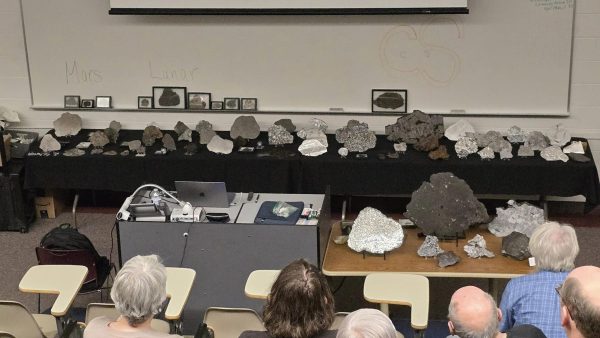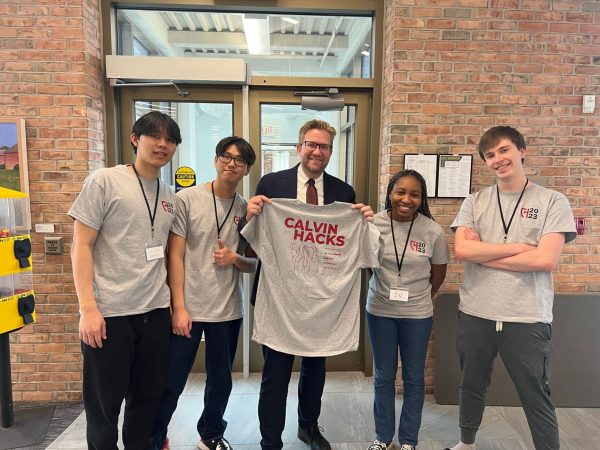Summer Research Building a Mapping Application for Returning Citizens
This summer, juniors Liam Ferraby and Annalane Miller worked together with Professor Jason VanHorn (GEO) and Professor Kevin den Dulk (Political Science) to build a mapping application to assist returning citizens during their reentry process from prison. The application can be accessed at gis.calvin.edu/rc
Ferraby and Miller’s summer research is part of a larger project to build a database of service providers that will be useful to those involved in the reentry process. A mapping application is an ideal way to provide this large amount of information to those who need it. The application was designed to be used directly by returning citizens themselves. Also, family, friends, parole officers and others assisting those returning from prison can use this application. The researchers designed the application to be simplistic and easy to use as possible while providing all the necessary information to connect those in need with the correct service providers to help them.
This project was a collaboration between two departments: the GEO Department and the Political Science Department. Miller worked to locate service providers, compiling their information and expanding the existing database. To collect all of this data, Miller used a method called the Snowball Method. This method involved finding a handful of organizations in a target area as a starting point and then using those locations as a connection point to find other service providers. Furthermore, he repeated the process until a substantial web of interconnected organizations emerged. Ferraby was then able to take this database and work on the development of the online application. As of right now, the application contains data for the state of Michigan. In the initial formation of the project, there was partial data for Kent County and a basic mapping application. This summer, the research team expanded the data and improving the delivery system to enhance user experience. Previous Calvin students worked on the early stages.
By the end of the summer, the researchers expanded the database successfully to cover more counties and greatly improved the application. Furthermore, they expanded from only within Kent County to fully cover three counties and nine others with partial data, as organization partnerships were not constrained by county lines. Also, the team added new features to the map to assist the users in gaining the information that they need. Some of the key features of the new map are county selection, an improved data filter by service type, a search bar and information on what the types of services can do.
After a summer of research, the project has gained interest from outside organizations looking to assist the research team in continued development and expansion. The Calvin Prison Initiative has also provided support for the research. Also, the researchers will present at multiple conferences to represent the application. There will be a restorative justice conference hosted by Calvin in October where the application will be showcased. The team will also be traveling to Washington D.C. to present at the American Association of Geographers Conference, as part of a “Thinking Spatially about Criminal Justice” section.






